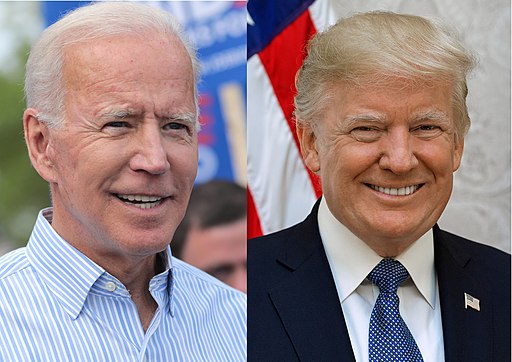
“[T]o restore the soul and to secure the future of America,” President Joe Biden said in his inaugural speech, “requires more than words. It requires that most elusive of things in a democracy: Unity. … This is our historic moment of crisis and challenge, and unity is the path forward.”
The bad news: Where politics is concerned, “unity” is a pipe dream.
The good news: Where human flourishing is concerned, the ersatz “unity” demanded by politicians like Joe Biden is neither necessary nor desirable.
There’s nothing wrong with unity as such. Unity is desirable when it’s voluntary, unanimous and based on shared values and interests. Otherwise, people should just do their own things.
Nor is politics as we know it about unity as such. It’s about ruling, and about making sure those who disagree with the rulers don’t GET to do their own things. That produces unity of a sort, among those who support the rulers. It also produces polarization between those who do and those who don’t.
Carl von Clausewitz’s aphorism, “war is the continuation of politics by other means,” is equally applicable in reverse. Politics does not bring an end to Hobbes’s “war of all against all.” It merely recruits the fighters into competing armies, waving different flags and wearing different uniforms.
Such polarization might be ugly, but not as ugly as prospective political unity. Such unity would look like George Orwell’s Nineteen Eighty-Four: A society united under the rule of a single party dedicated to stamping out not only dissent but the very possibility and concept of dissent. Thankfully, that’s never happened (even with millions dead or dying behind barbed wire, the Third Reich’s “unity” was contested by its Hans and Sophie Scholls).
Polarization is not the opposite of unity. The two are simply complementary sides of one coin. One both produces and requires the other. To transcend one, we must transcend both. And we can, by trading them in for another coin, the two sides of which are freedom and peace.
How do we get there? Through deescalation and decentralization.
To the extent that politics is war, and it is, the more things government controls, the more things we have to fight about. And the more things there are to fight about, the more we’re going to fight. Every new thing to fight about produces new internally unified, mutually polarized factions.
If we want freedom and peace, we have to reduce the power of government (anarchists and voluntaryists would eliminate that power entirely). If we have less to fight about, we’ll fight less.
In addition to reducing the power of government as a whole, spreading that power out through devolution, secession, even panarchism (“competing governments” in overlapping geographies) would allow voluntarily “unified” groups to live their way without demanding that others do likewise. Less to fight about. Less fighting. The first two have been done many times. The third is worth a try.
What’s not worth continued trying is coerced “unity” under Joe Biden or anyone else.
Thomas L. Knapp (Twitter: @thomaslknapp) is director and senior news analyst at the William Lloyd Garrison Center for Libertarian Advocacy Journalism (thegarrisoncenter.org). He lives and works in north central Florida.
PUBLICATION/CITATION HISTORY
-
- “Political ‘Unity’ is Neither Necessary Nor Desirable,” by Thomas L. Knapp, OpEdNews, 01/24/21
- “Political ‘unity’ is neither necessary nor desirable,” by Thomas L. Knapp, Orange County, California Register, 01/25/21
- “Political ‘unity’ is neither necessary nor desirable,” by Thomas L. Knapp, San Gabriel Valley, California Tribune, 01/25/21
- “Political ‘unity’ is neither necessary nor desirable,” by Thomas L. Knapp, Riverside, California Press-Enterprise, 01/25/21
- “Political ‘unity’ is neither necessary nor desirable,” by Thomas L. Knapp, San Bernardino, California Sun, 01/25/21
- “Political ‘unity’ is neither necessary nor desirable,” by Thomas L. Knapp, Los Angeles, California Daily News, 01/25/21
- “Political ‘unity’ is neither necessary nor desirable,” by Thomas L. Knapp, Long Beach, California Press-Telegram, 01/25/21
- “Political ‘unity’ is neither necessary nor desirable,” by Thomas L. Knapp, Redondo Beach, California Daily Breeze, 01/25/21
- “Political ‘unity’ is neither necessary nor desirable,” by Thomas L. Knapp, Redlands, California Daily Facts, 01/25/21
- “Political ‘unity’ is neither necessary nor desirable,” by Thomas L. Knapp, Inland Valley, California Daily Bulletin, 01/25/21
- “Political ‘unity’ is neither necessary nor desirable,” by Thomas L. Knapp, Pasadena, California Star-News, 01/25/21
- “Political ‘unity’ is neither necessary nor desirable,” by Thomas L. Knapp, Whittier, California Daily News, 01/25/21
- “Political ‘Unity’ is Neither Necessary Nor Desirable,” by Thomas L. Knapp, CounterPunch, 01/26/21
- “Political ‘unity’ is neither necessary nor desirable,” by Thomas L. Knapp, Richmond, North Carolina Observer, 01/26/21
- “Political ‘unity’ is neither necessary nor desirable,” by Thomas L. Knapp, Hopkinsville, Kentucky New Era, 01/27/21
- “Political ‘Unity’ is Neither Necessary Nor Desirable,” by Thomas L. Knapp, Madill, Oklahoma Record, 01/27/21
- “Political ‘Unity’ is Neither Necessary Nor Desirable,” by Thomas L. Knapp, Roundup, Montana Record – Tribune & Winnett Times, 01/27/21
- “‘Unity’ is unnecessary,” by Thomas L. Knapp, Richmond, Virginia Legacy [web and print], 01/27/21
- “Political ‘Unity’ is Neither Necessary Nor Desirable,” by Thomas L. Knapp, Ventura County, California Citizens Journal, 01/28/21
- “Political ‘unity’ is neither necessary nor desirable,” by Thomas L. Knapp, Coos Bay, Oregon World, 01/29/21
- “Political ‘unity’ is neither necessary nor desirable,” by Thomas L. Knapp, Lake Havasu City, Arizona News-Herald, 01/29/21
- “Political ‘unity’ is neither necessary nor desirable,” by Thomas L. Knapp, Kingsport, Tennessee Times News, 02/01/21


